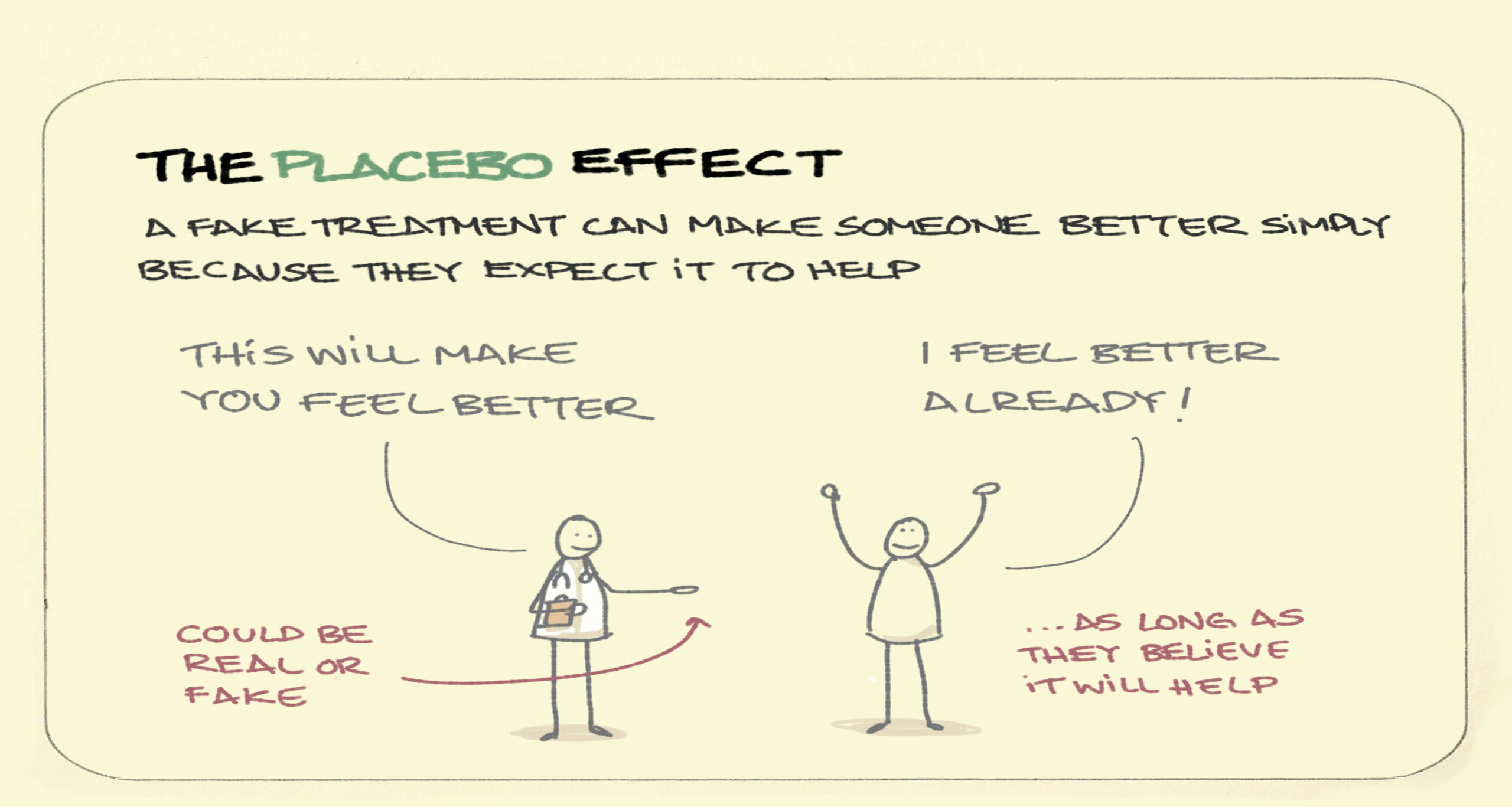The placebo effect is a cognitive bias that occurs when individuals experience real improvements in their condition or well-being after receiving a treatment or intervention that has no therapeutic value. These improvements are attributed to the individual’s belief in the effectiveness of the treatment rather than any actual medical or psychological impact.
Explanations:
The placebo effect is tied to the power of the mind and the body’s ability to respond to beliefs and expectations. When individuals believe that a treatment will work, their body can respond positively, leading to actual improvements in their condition.
Examples:
Sugar Pills: In medical trials, participants who receive a placebo (such as a sugar pill) may report reduced pain or improved symptoms due to their belief that they are receiving an effective treatment.
Alternative Therapies: People may experience relief from ailments by using alternative therapies or remedies that have no scientifically proven benefits but are believed to work.
Psychological Interventions: The belief that counseling or talk therapy can alleviate emotional distress can lead to real improvements in mental health, even if the treatment itself is non-pharmacological.
Solutions:
Double-Blind Studies: In medical and scientific research, conducting double-blind studies helps identify and control for the placebo effect by ensuring that neither the participants nor the researchers know who is receiving the placebo.
Evidence-Based Medicine: Rely on evidence-based medical practices and treatments that have been scientifically proven to be effective.
Critical Evaluation: Approach treatments and interventions with a degree of skepticism and seek medical or psychological treatments based on objective evidence rather than anecdotal experiences.
Mind-Body Practices: Mindfulness and stress-reduction techniques can help individuals manage symptoms or distress, but it’s important to distinguish these from medically effective treatments.
Addressing the placebo effect involves recognizing the power of belief and expectation in influencing health and well-being. While the placebo effect can be beneficial in some cases, it’s essential to rely on evidence-based medical or psychological treatments when dealing with serious health conditions or illnesses.
